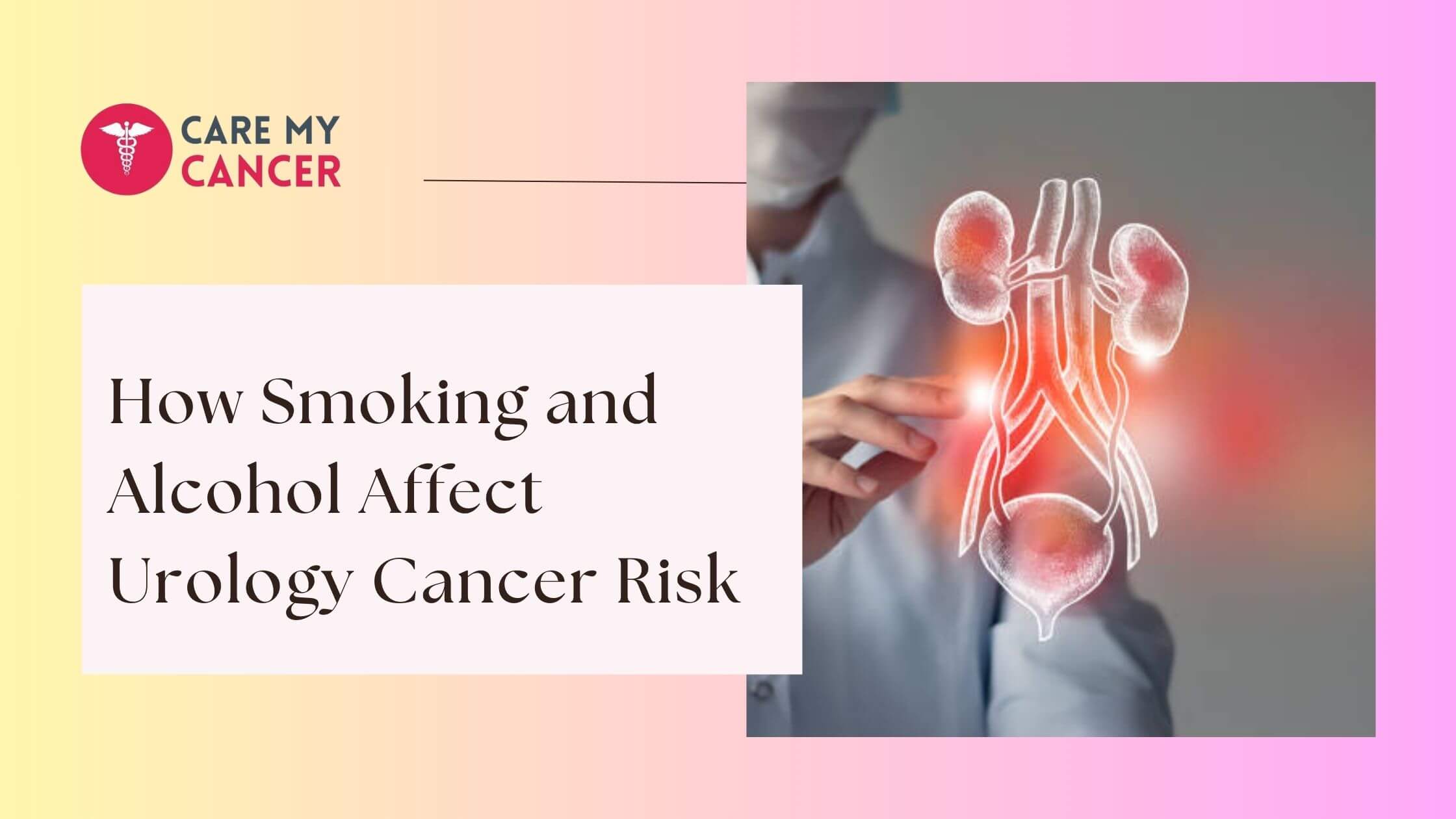Urological cancers encompass a range of malignancies affecting the urinary system, including bladder, kidney, and prostate cancers. The impact of lifestyle factors on these cancers has been extensively studied, with smoking and alcohol consumption identified as significant contributors to increased risk. This article explores the connection between these habits and urological cancer risks, providing valuable insights for individuals aiming to make informed health decisions.
The Link Between Smoking and Urological Cancer
Smoking is a well-established risk factor for various cancers, including those in the urological system. The harmful substances in tobacco, such as nitrosamines and polycyclic aromatic hydrocarbons, play a crucial role in initiating and promoting cancer development. Here’s how smoking impacts specific urological cancers:
- Bladder Cancer: Studies reveal that smokers are three times more likely to develop bladder cancer than non-smokers. Tobacco carcinogens, filtered through the kidneys and concentrated in the urine, damage the bladder’s lining, leading to cancerous changes over time.
- Kidney Cancer: Smoking contributes to renal cell carcinoma, the most common form of kidney cancer. Research suggests that smokers face a 50% higher risk of kidney cancer due to prolonged exposure to harmful chemicals that damage kidney cells.
- Prostate Cancer: While the link between smoking and prostate cancer is less direct, evidence indicates that smokers diagnosed with prostate cancer often experience more aggressive disease forms and poorer treatment outcomes.
Quitting smoking significantly reduces these risks, with studies showing a gradual decline in urological cancer risks over time after cessation.
Alcohol Consumption and Urological Cancer
The relationship between alcohol intake and urological cancers is complex, varying by the type and amount of alcohol consumed. While moderate drinking is often considered safe, excessive alcohol consumption poses significant risks:
- Bladder Cancer: Alcohol’s carcinogenic potential is linked to its metabolite, acetaldehyde, which can damage DNA and interfere with repair mechanisms. Heavy drinking has been associated with a slight increase in bladder cancer risk.
- Kidney Cancer: The evidence is inconsistent regarding alcohol’s role in kidney cancer. Some studies suggest that moderate alcohol consumption may have a protective effect, while excessive intake negates any benefits and increases risks due to systemic inflammation and oxidative stress.
- Prostate Cancer: Heavy drinking is associated with aggressive forms of prostate cancer. Alcohol’s impact on hormone levels, including testosterone, may influence prostate cancer development and progression.
Limiting alcohol intake to recommended levels—or avoiding it altogether—is a proactive step in reducing urological cancer risks.
Synergistic Effects of Smoking and Alcohol
Smoking and alcohol often coexist as lifestyle habits, and their combined effects can be particularly harmful. Together, they amplify carcinogenic potential through mechanisms such as increased DNA damage, oxidative stress, and impaired immune function. For individuals engaging in both habits, the risk of developing urological cancers is significantly higher than for those who smoke or drink alone.
Prevention Strategies
Reducing the risk of urological cancers involves addressing modifiable lifestyle factors like smoking and alcohol consumption. Here are actionable strategies:
- Quitting Smoking: Seek support through cessation programs, counseling, or nicotine replacement therapies. The health benefits of quitting are immediate and long-term.
- Moderating Alcohol Consumption: Adhere to guidelines—no more than one drink per day for women and two for men. Consider non-alcoholic alternatives to reduce dependency.
- Regular Screening: Early detection through screening can significantly improve outcomes. Discuss risk factors and screening schedules with a healthcare provider.
- Healthy Lifestyle Choices: Incorporate a balanced diet rich in fruits and vegetables, regular physical activity, and adequate hydration to support overall urinary tract health.
- Education and Awareness: Educate yourself and others about the risks associated with smoking and alcohol. Community programs can play a vital role in promoting healthier behaviors.
Conclusion
The connection between smoking, alcohol consumption, and urological cancer risks underscores the importance of lifestyle choices in disease prevention. Both habits introduce harmful substances that can initiate and exacerbate cancer development in the urinary system. By quitting smoking, moderating alcohol intake, and embracing healthier habits, individuals can significantly reduce their risk of urological cancers. Awareness and proactive measures not only safeguard personal health but also contribute to broader public health efforts in combating cancer. Make the choice today for a healthier, cancer-free tomorrow.
- How to Prevent Cancer Naturally: Lifestyle and Diet Tips
- Why Cancer Awareness Is Important in Today’s World
- How to Reduce Lung Cancer Risk Factors Naturally
- Who Is Most at Risk of Developing Throat Cancer?
- Throat Cancer Risk Factors: Causes You Should Never Ignore

